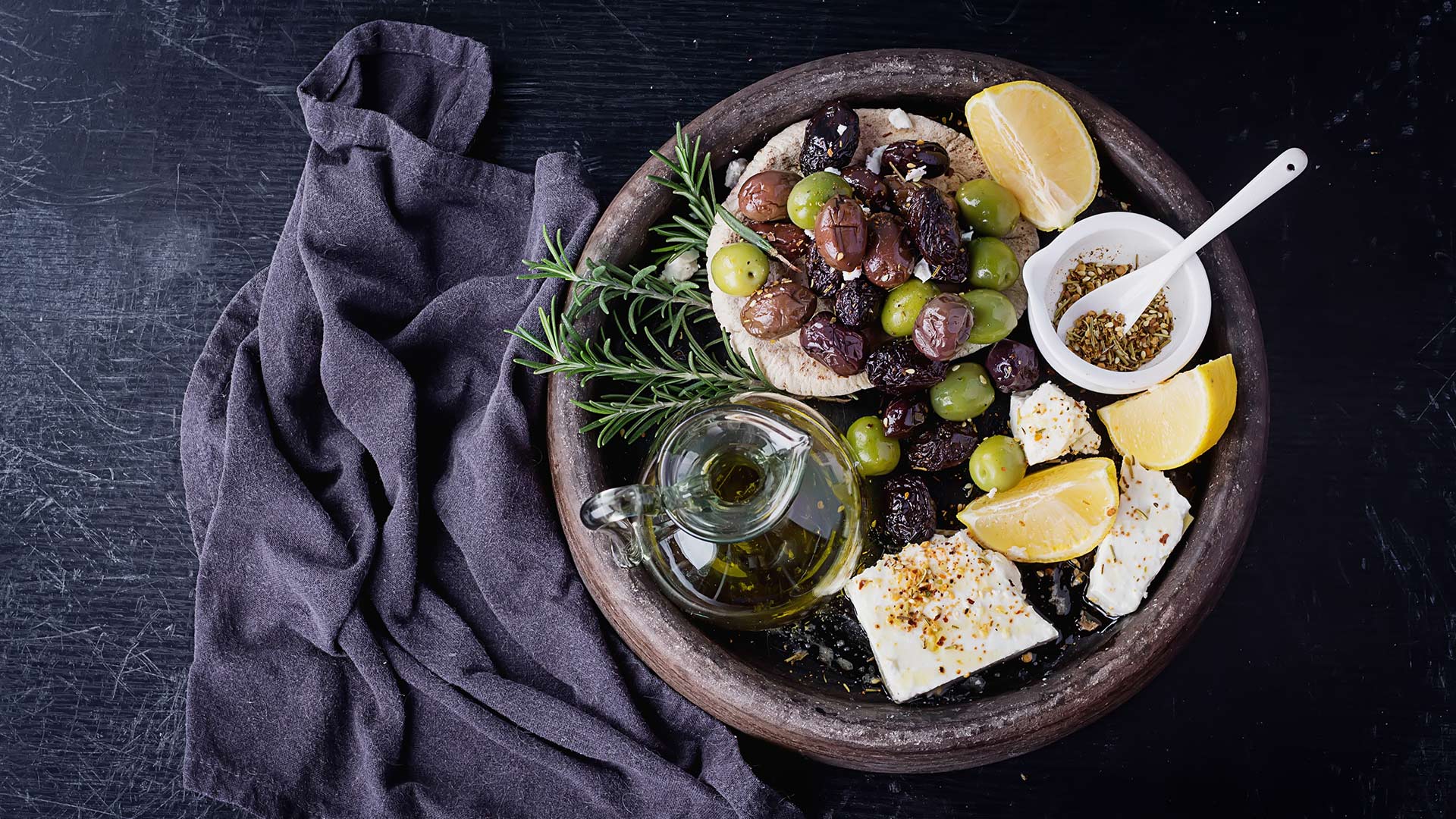
The traditional Greek diet is known for the simple preparation of tasty food made in Greece, which has shaped the dietary habits of Greeks from ancient times up to the present.
Its main advantage is that the Greek diet is based on three principles: Variety – Moderation – Balance.
Variety: For achieving a good quality diet, WHO officials have formulated recommendations based on separating food into groups and placing them in the Healthy Eating Pyramid. Thus, by consuming food from all food groups with the frequency stipulated in the pyramid, we can receive all nutrients in the correct amounts.
Moderation: There are no forbidden foods, nor foods that should be consumed in excess. All food contributes to covering nutritional needs, so long as it is eaten in normal quantities and at the correct frequency. All food has something to offer to our body: Well-being, taste, nutrition!!!
Balance: refers to the intake of food from all groups (dairy, fruit, vegetables, cereals, pasta, pulses, fish, poultry, red meat, olive oil, nuts), so that all nutrients are taken in quantities that not only allow the body to function well, but also maintain body weight at normal levels.
The most frequently encountered food categories in Greek cooking are the following:
Furthermore, the use of herbs and olive oil features prominently in Greek cooking. The most frequently used herbs are basil, dill, parsley and oregano. These ingredients add more than just flavor; in an analysis performed in the US, these ranked amongst the first 50 out of more than 1,000 foods with the greatest content in antioxidants. By using more herbs and spices in cooking, we can reduce our salt intake, which is an equally important parameter in enhancing health.
Olive oil is one of the main sources of fat in the Greek diet, which is rich in monounsaturated fatty acids and antioxidants, contributing to the prevention of chronic diseases (e.g. cardiovascular, Alzheimer, cancer). At the same time, the addition of olive oil to salads and cooking helps protect from oxidation and stimulates vitamin absorption.
The variety of foods that make up Greek traditional cooking has many benefits for human health:
The 10 “golden” tips of the Greek Mediterranean Diet
1. Consume 5-7 servings of fruit and vegetables daily
2. Cook pulses or vegetables cooked in oil or rice based meals cooked in oil 2 – 3 times a week
3. Eat 2-3 servings of fish and seafood a week
4. Opt for whole grains
5. Limit the intake of red meat and processed meat
6. Alcohol: Limit your alcohol intake to 2 servings for men and 1 for women
7. Season your food and salads liberally with aromatic herbs, lemon, vinegar, herbs and spices
8. Olive oil: Use it as your main source of fat
Avoid food such as: crisps, chocolate, puff pastry, pies and sweets as they contain large amounts of fatty acids, sugar and salt
9. Weight: Maintain your weight at normal levels (Body Mass Index: 18.5-25kg/m2).
10. Exercise: Work out for at least 30 minutes every day